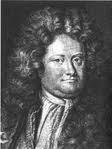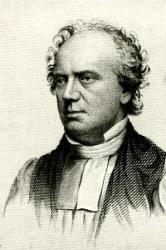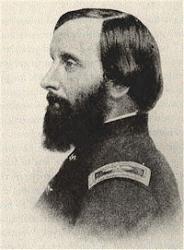Planning worship?
Check out our sister site, ZeteoSearch.org,
for 20+ additional resources related to your search.
- |
User Links
Person Results
‹ Return to hymnal



Export as CSV
Denis Wortman
1835 - 1922 Person Name: Dennis Wortman Hymnal Number: 281 Author of "God of the prophets! Bless the prophets' sons" in Hymns of the United Church
Denis Wortman
Sigismund Thalberg
1812 - 1871 Hymnal Number: 341 Composer of "THALBERG" in Hymns of the United Church
Sigismund Thalberg
John Johns
1801 - 1847 Hymnal Number: 140 Author of "Come, kingdom of our God" in Hymns of the United Church Johns, John, born at Plymouth, March 17, 1801, the son of an artist. Educated at the grammar school and by the Rev. I. Worsley, Unitarian minister at Plymouth, and afterwards spent two years at Edinburgh. In 1820 became minister of the old Presbyterian chapel at Crediton, where he remained till his removal to Liverpool in 1836, as Minister to the Poor. He was a man of fine poetic temperament and retiring disposition, but his work among the people called out his great practical and organising ability. He died a sacrifice to the fever which raged in the district where he laboured, June 23, 1847. Besides his reports to the Liverpool Domestic Mission Society, and frequent contributions to the Monthly Repository, Christian Reformer, and Christian Teacher, he published three volumes of poetry, Dews of Castalie; a collection of Poems, 1828; The Valley of the Nymphs, 1829; and Georgics of Life, 1846. There are 35 of his hymns in Dr. Beard's Collection, 1837, and several of them are in other Unitarian books. The best known of his hymns are:—
1. Come, Kingdom of our God. Prayer for the Kingdom of God.
2. Farewell, our blighted treasure. Death of a Child.
3. Great God, avert from us the thought. Heaven.
4. Hush the loud cannon's roar. Common Brother' hood and Peace Universal.
5. O know ye not that ye. Purity. This is altered from “What, know ye not that ye?"
6. Thanks to God for these who came. Preachers of the Word. Altered from "Welcome, welcome these who came."
7. Thou must be born again. Necessity of the New Birth.
These hymns were contributed to Beard's Collection, 1837, and passed thence into other collections. (Rev. Valentine D. Davis, B.A.]
--John Julian, Dictionary of Hymnology (1907)
John Johns
Thomas Morley
1845 - 1891 Hymnal Number: 187 Composer of "DAVID" in Hymns of the United Church Thomas Morley; b. Oxford, England, 1845; d. St. John, New Brunswick, 1891
Evangelical Lutheran Hymnal, 1908
Thomas Morley
Friedrich von Canitz

1654 - 1699 Person Name: F. R. L. von Canitz Hymnal Number: 98 Author of "Come, my soul, thou must be waking" in Hymns of the United Church Friedrich Rudolph Ludwig von Canitz, German poet and diplomant, was born at Berlin, November 27, 1654. He studied at the universities of Leyden and of Leipzig. After extensive travels in Europe, he was appointed groom of the bedchamber to the elector Frederick William of Brandenburg. In 1680, he became councilor of legation, then privy councilor, and was finally created a baron of the empire. He died in Berlin on August 11, 1699. His poems, which did not appear until after his death, are for the most part dry and stilted, based upon Latin and Greek models, but they were, nevertheless, a healthy influence and counterbalance to the coarseness of contemporary poetry. The spiritual poems, 24 in number, are his best work. They were first published anonymously after his death, edited by Joachim Lange as Nebenstunden unterschiedener Gedichte, 1700.
--The Hymnal 1940 Companion
=====================
Canitz, Friedrich Rudolph Ludwig, Freiherr von, son of Ludwig v. Canitz, privy and legal counsellor at Berlin; was born at Berlin, Nov. 27,1654, a few months after his father's death. After studying at the Universities of Leyden and Leipzig, he made in 1675-77 a tour in Italy, France, England, and Holland. In 1677 he was chosen gentleman of the bedchamber by the Elector Friedrich Wilhelm, and accompanied him in his campaigns in Pomerania, &c. He was then, in 1680, appointed chief magistrate of the district of Zossen and Trebbin, in the Mittelmark, and in 1681 counsellor of the Court and Legation. After a successful embassy to Frankfurt, 1682, he was appointed in 1683 chief magistrate of Miihlenhoff and Muhlenbeck. He executed many important missions under Friedrich Wilhelm and his successor Friedrich III., was a privy counsellor, and received in 1698 the dignity of Baron from the Emperor Leopold I. He died at Berlin, Aug. 11, 1699 (Koch, iv. 238-248; Allg. Deutsche Biographie, iii. 756, the latter dating his death Aug. 1). His hymns were first published posthumously, and without his name. They were edited by Dr. Joachim Lange, Rector of the Berlin Gymnasium, as Nebenstunden unterschiedener Gedichte, Berlin, 1700. Of the 24 religious poems, only 2 have continued in German common use, viz.:—
i. Gott, du lässest mich erreichen. Evening. 1700, as above, p. 6, in 6 stanzas. Translated as: "Father! hear me humbly praying" (beginning with st. ii. "Neige dich zu meinen Bitten "), by H. J. Buckoll, 1842, p. 99.
ii.. Seele du musst munter werden. Morning. This beautiful hymn, the mirror of his life, was first published 1700 as above, p. 3, in 14 stanzas of 6 lines. Included as No. 795 in Freylinghausen's Neues geistreiches Gesang-Buch, 1714, and as No. 471 in the Unverfälschter Leider 1851. The translations in common use are:—
1. Come, my soul, thou must be waking. A very good translation by H. J. Buckoll, omitting stanzas ii., iv., viii., given in a note at p. 456 of Dr. Arnold's Christian Life: its Cause, its Hindrances, and its Helps. London, 1841. The note is to a passage in Sermon vi., on Col. iii. 3, dated March, 1840, in which Dr. Arnold says:—
”Some may know the story of that German nobleman [v. Canitz] whose life had been distinguished alike by genius and worldly distinctions, and by Christian holiness; and who, in the last morning of his life, when the dawn broke into his sick chamber, prayed that he might be supported to the window, and might look once again upon the rising sun. After looking steadily at it for some time, he cried out, "Oh! if the appearance of this earthly and created thing is so beautiful and quickening, how much more shall I be enraptured at the sight of the unspeakable glory of the Creator Himself." That was the feeling of a man whose sense of earthly beauty bad all the keenness of a poet's enthusiasm, but who, withal, had in his greatest health and vigour preserved
the consciousness that his life was hid with Christ in God; that the things seen, how beautiful soever, were as nothing to the things which are not seen (p. 61).
Of the translation Dr. Arnold says, "For the greatest part I am indebted to the kindness of a friend," which means that portions (viz. st. i., 11. 1-3, and one or two expressions) are taken from the anonymous version of 1838 (see below). In 1842 Buckoll included it in his Hymns from the German, p. 36, altering stanza iii. 1. 3, xii. line 1. 1-3, and xiii. It is the text in Dr. Arnold's sermons which has passed into common use in the following forms, the references being to the translation of the German stanzas.
(1) St. i., v.-vii., ix.-xi., American Episcopal Hymns for Church and Home, 1860, altered.
(2) St. i., vi., vii., ix.-xii., in the Salisbury Hymn Book, 1857, and Kennedy, 1863. The Anglican Hymn Book., 1871, and the Evangelical Hymnal, N. Y., 1880, omit st. xii.
(3) St. i., vi., vii., ix.,xi., xii., considerably altered and with an added doxology in Sarum, 1868. This text in full, or abridged, is found in Church Hymns, 1871; Hymnary, 1872; Stevenson's Hymns for Church and Home, 1873; Baptist Hymnal, 1879, and others; and in America in the Episcopal Hymnal, 1871; Laudes Domini, 1884.
(4) St. i., vi., vii., ix.-xii., xiv., in Harrow School Hymn Book., 1855,1866; Marlborough College, 1869, &c.
(5) St. i., vii., ix., xi., with an added stanza in Book of Common Praise, 1863; and in G. S. Jellicoe's Collection, 1867.
2. Come, my soul, awake, 'tis morning. A good translation, omitting stanzas ii., iv., viii., by Miss Winkworth in her Lyra Germanica, 1855, 1st series, p. 210, and thence, retaining only the translations of stanzas i., vi., vii., xi.-xiii., in her Choral Book for England, 1863.
Another translation is:—
"Come, my soul! thou must be waking," in the British Magazine, July, 1838, p. 21. From this, st. i., 11. 1-3, and one or two expressions were adopted by Buckoll. [Rev. James Mearns, M.A.]
--John Julian, Dictionary of Hymnology (1907)
Friedrich von Canitz
William Crosswell

1804 - 1851 Person Name: William Croswell Hymnal Number: 169 Author of "Lord, lead the way the Savior went" in Hymns of the United Church Crosswell, William, D.D., was born at Hudson, N.Y., Nov. 7, 1804; graduated at Yale College, 1822; entered for a time upon law studies, but eventually he entered Hartford College as a Theological Student, and then took Holy Orders in the Protestant Episcopal Church in 1829. In 1829 he became Rector of Christ Church, Boston; in 1840, of St. Peter's, Auburn, New York; and in 1844, of the Church of the Advent, Boston. Died suddenly at Boston, Nov. 9, 1851. Whilst at Hartford he assisted, during 1827-28, in editing The Watchman, and contributed to it many of his poetical pieces. His Memoir was written by his father, the Rev. Dr. Crosswell, of New Haven; and his Poems, collected by his father, were edited, with a short Memoir, by Dr. (now Bishop) Coxe, and published at Boston in 1800. Of his hymns the folowing are in common use:—
1. Lord, go with us, and we go. Journeying. This in Hymns for the Church and Home, 1860, No. 212, is a portion of his "Traveller's Hymn," first published in 1833. Concerning it Dr. Coxe says, "When on a journey with him, I reminded him of his 'Traveller's Hymn,' which I had seen but could not remember; and he told me, if I recollect aright, that it was a sort of Impromptu, which bubbled up when he was going with Dr. Wainwright from Boston to New York to attend the General Convention" (Memoir, p. xlii.); and in his notes, p. 282, he indirectly fixes the date of composition as 1832. Orig. text in 2 stanzas of 8 lines, in Poems, p. 255.
2. Lord, lead the way the Saviour went. For Sisters of Mercy. Written in 1831 for the Howard Benevolent Society of Boston. Dr. Coxe has entitled it "Hymn forSisters of Mercy," and says he "ventured to give it a name suited to the present state of the Church, in which Deaconesses and Sisters of Mercy are among other realizations of the poet's ardent hopes. Perhaps we owe them to his faithful prayers." (Notes to the Poems, p. 283.) It is generally accepted as the best American hymn for benevolent occasions. Original text, Poems, p. 256.
3. Now gird your patient loins again. Advent. This hymn for Advent is in 3 stanzas of 4 lines. Poems, p. 209; Hymns for Church and Home, No. 55.
4. 0 Saviour, leave us not alone. Lent. This is from his hymn for Lent beginning, "Thou who, for forty days and nights," in 4 stanzas of 4 double lines. In its abbreviated form it is found in Hymns for Church and Home, No. 85. Original in Poems, p. 219, in 4 stanzas of 4 double lines.
5. We come not with a costly store. Epiphany. For the Epiphany, from his Poems, p. 215, and based upon the Gospel of the day, in 2 stanzas of 8 lines.
6. And now the solemn rite is past. Ordination. This is composed of stanzas vii., viii. of his poem, "The Ordinal," in Poems, pp. 69-71, slightly altered. "The Ordinal" was written in 1828, and describes minutely his own ordination at his father's church, at New Haven, and the feel¬ings inspired, by the solemnity. It was printed in The Watchman, 1828. (Poems, Preface, p. xxvii.) The portion given as "And now the solemn rite is past" was included in Hall's Mitre, 1836.
Dr. Crosswell also translated the "Veni, Creator Spiritus" as "Creator, Spirit, come and bless us." His hymns are mostly unknown to the English collections. [Rev. F. M. Bird, M.A.]
--John Julian, Dictionary of Hymnology (1907)
=================
Crosswell, W., p. 269, ii. On the title-page of his Poems, 1861, this author is given as W. Croswell, and the best authorities are in favour of this spelling of the name.
--John Julian, Dictionary of Hymnology, New Supplement (1907)
William Crosswell
Edmund S. Carter
1845 - 1923 Hymnal Number: 22 Composer of "CARTER" in Hymns of the United Church Born: February 3, 1845, New Malton, Yorkshire, England.
Died: May 23, 1923, Scarborough, Yorkshire, England.
Carter attended Worcester College, Oxford (BA & MA 1871). He was ordained deacon in 1871, and priest in 1872. He served as Curate of Christ Church, Ealing, Middlesex (1871-75); Vicar choral of York Minster (1875); Rector of St. Martin, Micklegate, York (1877-82); and Vicar of St. Michael Belfry, York (1882).
Music:
DAY BY DAY
WREFORD
--www.hymntime.com/tch/
Edmund S. Carter
William Merrell Vories
1880 - 1964 Hymnal Number: 221 Author of "Let there be light, Lord God of Hosts" in Hymns of the United Church
William Merrell Vories
Thomas W. Higginson

1823 - 1911 Person Name: Thomas Wentworth Higginson, 1822-1911 Hymnal Number: 126 Author of "The past is dark with sin and shame" in Hymns of the United Church Higginson, Thomas Wentworth, M.A., was born at Cambridge, U.S.A., Dec. 22, 1823, and educated at Harvard. From 1847 to 1850 he was Pastor of an Unitarian Church at Newburyport, and from 1852 to 1858 at Worcester. In 1858 he retired from the Ministry, and devoted himself to literature. During the Rebellion he was colonel of the first negro regiment raised in South Carolina. In addition to being for some time a leading contributor to the Atlantic Monthly, he published Outdoor Papers, 1863; Malbone, 1869; and other works. During his residence at the Harvard Divinity School he contributed the following hymns to Longfellow and Johnson's Book of Hymns, 1846:—
1. No human eyes Thy face may see. God known through love.
2. The land our fathers left to us. American Slavery.
3. The past is dark with sin and shame. Hope.
4. To Thine eternal arms, O God. Lent.
In the Book of Hymns these hymns are all marked with an asterisk. They, together with others by Mr. Higginson, are given in Putnam's Singers and Songs of the Liberal Faith, 1875. [Rev. F. M. Bird, M.A.]
-- John Julian, Dictionary of Hymnology
Thomas W. Higginson
R. S. Ambrose
1824 - 1908 Hymnal Number: 444 Composer of "DULCE DOMUM" in Hymns of the United Church Robert Steele Ambrose United Kingdom 1824-1908, Ambrose grew up in Chelmsford, attending the parish church of St. Mary the Virgin, where his father was organist. He received early musical training from his father and probably sang in the church choir. His family emigrated to upper Canada in 1837 and purchased land near Guelph, intending to farm it. But lacking training and experience, he found it too much of a challenge. He moved to Hamilton, Ontario, in 1845 to become an organist of Christ's Church, leaving Robert to run the farm. That same year, Robert became the organist at St. George's Church in Guelph and gave piano lessons to several local pupils. He wrote to his father complaining that he did not like farming, as plowing was too rough on his hands and interfered with his musical efforts. He moved to Kingston in 1847 and joined his brother teaching music. His brother, Charles, left there,and Robert took over his students. He took on pianoforte tuning, organist for St. George's Church and a choirmaster position to make ends meet. In 1863 Robert moved to Hamilton as organist and choir director of Church of the Ascension and stayed there 20 years. The following year he became music director for Wesleyan Female College. He stayed there 25 years, teaching hundreds of students over the years. He was also a prolific composer, having 100+ musical works (anthems and instrumentals). In recognition of his musical contributions, he was elected president of the Canadian Society of Musicians.
John Perry
R. S. Ambrose


 My Starred Hymns
My Starred Hymns


